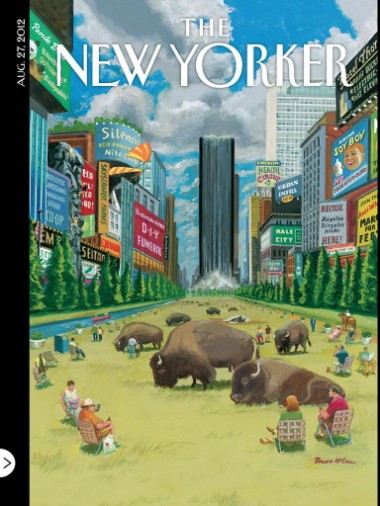SMARTPHONES
I cannot get used to seeing myriads of people in the street peering into little boxes or holding them in front of their faces, walking blithely in the path of moving traffic, totally out of touch with their surroundings. I am most alarmed by such distraction and inattention when I see young parents staring at their cell phones and ignoring their own babies as they walk or wheel them along. Such children, unable to attract their parents’ attention, must feel neglected, and they will surely show the effects of this in the years to come…
These gadgets, already ominous in 2007, have now immersed us in a virtual reality far denser, more absorbing, and even more dehumanizing. I am confronted every day with the complete disappearance of the old civilities. Social life, street life, and attention to people and things around one have largely disappeared, at least in big cities, where a majority of the population is now glued almost without pause to phones or other devices—jabbering, texting, playing games, turning more and more to virtual reality of every sort.
Everything is public now, potentially: one’s thoughts, one’s photos, one’s movements, one’s purchases. There is no privacy and apparently little desire for it in a world devoted to non-stop use of social media. Every minute, every second, has to be spent with one’s device clutched in one’s hand. Those trapped in this virtual world are never alone, never able to concentrate and appreciate in their own way, silently. They have given up, to a great extent, the amenities and achievements of civilization: solitude and leisure, the sanction to be oneself, truly absorbed, whether in contemplating a work of art, a scientific theory, a sunset, or the face of one’s beloved.
A few years ago, I was invited to join a panel discussion about information and communication in the twenty-first century. One of the panelists, an Internet pioneer, said proudly that his young daughter surfed the Web twelve hours a day and had access to a breadth and range of information that no one from a previous generation could have imagined. I asked whether she had read any of Jane Austen’s novels, or any classic novel. When he said that she hadn’t, I wondered aloud whether she would then have a solid understanding of human nature or of society, and suggested that while she might be stocked with wide-ranging information, that was different from knowledge. Half the audience cheered; the other half booed.
–Oliver Sacks, “The Machine Stops”


